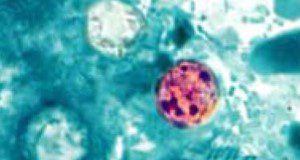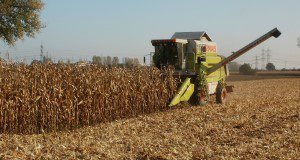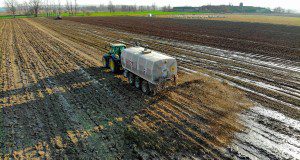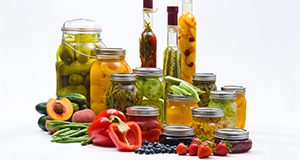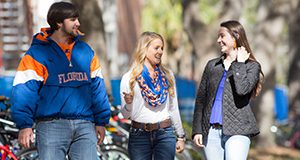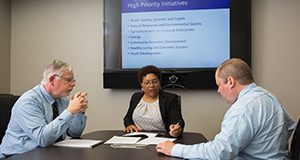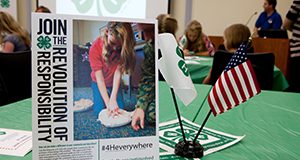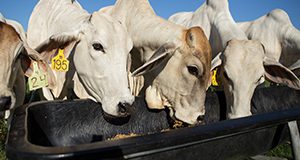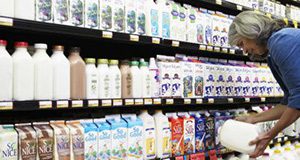The importance of protecting perishable foods from loss of quality during transport has long been recognized. Increased recognition of the importance of the transport link in the food distribution cold chain in securing the safety of perishable foods has more recently become as well recognized.
This updated edition reflects the dynamic changes and innovations in the handling and transportation of perishable foods. Some of these include improved insulation and air movement, microprocessors for more efficient refrigeration, expert systems to control the transport environment and conserve fuel energy, and the use of telematics to monitor and control the performance of refrigerated vehicles during transit. This edition includes descriptions and recommendations for food transported over the road and by rail in marine containers, as well as in railcars. This 214-page revision was written by J. K. Brecht, Steven A. Sargent, Patrick E. Brecht, Jorge Saenz, and Leonard Rodowick and published by the UF/IFAS Horticultural Sciences Department in cooperation with the USDA AMS Transportation Services Division.
http://edis.ifas.ufl.edu/hs1328
Category: Families & Consumers
Permeable Pavement Systems: Technical Considerations
Permeable pavement systems are Green Stormwater Infrastructure practices that can reduce runoff while supporting vehicle and pedestrian traffic. This new 8-page document provides technical details of permeable pavement systems, such as application, system elements, design, installation, operation, maintenance, crediting, and costs, in order to inform planners, engineers, landscape architects, local government officials, and other professionals in the built environment about the considerations for implementing and maintaining permeable pavements. Written by E. Bean, M. Clark, and B. Larson, and published by the UF/IFAS Department of Agricultural and Biological Engineering, April 2019.
http://edis.ifas.ufl.edu/ae530
Assessing the Relationship between Supervisors and Employees
Relationship-based leadership is characterized by trust, respect, and mutual obligation that generates influence between parties. Within UF/IFAS Extension especially, many relationships between supervisors and employees are dynamic and multidimensional, characterized as both supervisory and collegial. Leader-Member Exchange Theory (LMX) is a relationship-based approach that explains leadership as an interaction between both leader and follower. In this new 4-page publication of the UF/IFAS Department of Agricultural Education and Communication, Matthew Benge presents the LMX-7, an assessment instrument to gauge the quality of relationship between supervisors and their employees.
http://edis.ifas.ufl.edu/wc332
Preventing Foodborne Illness: Cyclosporiasis
Cyclosporiasis is an intestinal illness caused by the microscopic parasite Cyclospora cayetanensis. People can become infected with Cyclospora by consuming food or water contaminated with the parasite. People living or traveling in countries where cyclosporiasis is endemic may be at increased risk for infection. This 6-page publication is part of the Preventing Foodborne Illness series and describes symptoms and strategies for cyclosporiasis prevention for farmers, restaurants and retailers, and consumers. This major revision was written by Christopher R. Pabst, Jaysankar De, Renée Goodrich-Schneider, and Keith R. Schneider and published by the UF/IFAS Food Science and Human Nutrition Department.
http://edis.ifas.ufl.edu/fs130
Food Safety on the Farm: Good Agricultural Practices and Good Handling Practices: Transportation
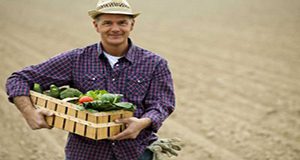
Good agricultural practices (GAPs) and good handling practices (GHPs) encompass the general procedures growers, packers, and processors of fresh fruits and vegetables should follow to ensure the safety of their product. GAPs usually address preharvest practices (i.e., in the field), while GHPs cover postharvest practices, including packing and shipping. This 3-page fact sheet covers the GAPs of transporting crops. This major revision is a part of the Food Safety on the Farm series and was written by Christopher R. Pabst, Jaysankar De, Alina Balaguero, Jessica Lepper, Renée Goodrich-Schneider, and Keith R. Schneider and published by the UF/IFAS Food Science and Human Nutrition Department.
http://edis.ifas.ufl.edu/fs151
Developing a Mentorship Program in Higher Education Institutions
Higher education institutions are currently tackling a growing number of organizational challenges that have forced departments to evolve their business practices. Administrators faced with the need for more diverse programs must decide whether to develop talent internally or recruit new qualified candidates. Given the great cost of faculty searches and the perceived diminishing availability of talented applicants, it is imperative that administrators understand the value of mentoring relationships to fill openings with qualified candidates. However, formal mentoring programs have been slow to develop in higher education institutions. This new 4-page publication defines mentorship, explains the value of mentorship, and describes how mentoring programs can be established. Written by Jonathan M. Orsini, Matthew P. Benge, and Hannah S. Carter, and published by the UF/IFAS Department of Agricultural Education and Communication.
http://edis.ifas.ufl.edu/wc328
Food Safety on the Farm: Good Agricultural Practices and Good Handling Practices: Field Sanitation
Good Agricultural Practices (GAPs) and Good Handling Practices (GHPs) encompass the general procedures that growers, packers, and processors of fresh fruits and vegetables should follow to ensure the safety of their product. GAPs usually deal with preharvest practices (i.e., in the field), while GHPs cover postharvest practices, including packing and shipping. This 5-page fact sheet covers harvest practices associated with sanitation in the field, including basic principles for microbial food safety and control of potential hazards. This major revision is a part of the Food Safety on the Farm series and was written by Jessica Lepper, Jaysankar De, Christopher Pabst, Renée Goodrich-Schneider, and Keith Schneider and published by the UF/IFAS Food Science and Human Nutrition Department.
http://edis.ifas.ufl.edu/fs160
Food Safety on the Farm: Good Agricultural Practices and Good Handling Practices: Traceback
Good Agricultural Practices (GAP) and Good Handling Practices (GHP) are voluntary audits that verify fruits and vegetables are produced, packed, handled, and stored as safely as possible to keep the risks of microbial food safety hazards at the minimal level. Good Agricultural Practices usually deal with preharvest practices (i.e., in the field), while GHPs cover postharvest practices, including packing and shipping. This 3-page fact sheet in the Food Safety on the Farm series covers GAPs and GHPs relating to traceback, or the ability to track food items, such as fresh produce, back to their source. This major revision was written by Jaysankar De, Christopher R. Pabst, Alexandra S. Chang, Renée M. Goodrich-Schneider, and Keith R. Schneider and published by the UF/IFAS Food Science and Human Nutrition Department.
http://edis.ifas.ufl.edu/fs152
Food Safety on the Farm: Good Agricultural Practices and Good Handling Practices: Manure and Municipal Biosolids
Good Agricultural Practices (GAPs) and Good Handling Practices (GHPs) encompass the general procedures growers, packers, and processors of fresh fruits and vegetables should follow to ensure the safety of their product. GAPs usually deal with pre-harvest practices (i.e., in the field), while GHPs tend to cover post-harvest practices, including packing and shipping. This 5-page entry in the Food Safety on the Farm series focuses on Good Agricultural Practices, including pathogen reduction and handling and application, to control potential hazards when working with manure and biosolids. This major revision was written by Jaysankar De, Christopher R. Pabst, Jessica Lepper, Renée M. Goodrich-Schneider, and Keith R. Schneider and published by the UF/IFAS Food Science and Human Nutrition Department.
http://edis.ifas.ufl.edu/fs150
Preventing Foodborne Illness: Yersiniosis
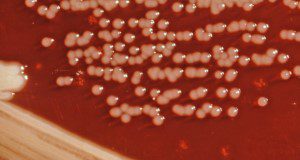 Yersiniosis is an infectious disease caused by the bacterium Yersinia and is typically associated with the consumption of contaminated food or liquids. Yersiniosis is characterized by common symptoms of gastroenteritis such as abdominal pain and mild fever. The bacterium is prevalent in the environment, enabling it to contaminate water and food systems. Outbreaks of yersiniosis have been associated with improperly pasteurized milk, ready-to-eat salad mix, oysters, and more commonly with consumption of undercooked meals containing pork. Yersiniosis incidents have been reported frequently in Northern Europe, Scandinavia, and Japan, and rarely in the United States. However, the reported low incidence of Yersinia in the US food supply may be underestimated due to the long incubation time and misdiagnosis of patients with Y. enterocolitica infections, along with the inability to identify the source of infection and the fact that only serious cases are reported. This 4-page major revision, written by Christopher Pabst, Jaysankar De, Aswathy Sreedharan, Correy Jones, and Keith R. Schneider and published by the UF/IFAS Food Science and Human Nutrition Department, also describes long-term effects and complications of yersiniosis, members of the population most at risk, and prevention methods.
Yersiniosis is an infectious disease caused by the bacterium Yersinia and is typically associated with the consumption of contaminated food or liquids. Yersiniosis is characterized by common symptoms of gastroenteritis such as abdominal pain and mild fever. The bacterium is prevalent in the environment, enabling it to contaminate water and food systems. Outbreaks of yersiniosis have been associated with improperly pasteurized milk, ready-to-eat salad mix, oysters, and more commonly with consumption of undercooked meals containing pork. Yersiniosis incidents have been reported frequently in Northern Europe, Scandinavia, and Japan, and rarely in the United States. However, the reported low incidence of Yersinia in the US food supply may be underestimated due to the long incubation time and misdiagnosis of patients with Y. enterocolitica infections, along with the inability to identify the source of infection and the fact that only serious cases are reported. This 4-page major revision, written by Christopher Pabst, Jaysankar De, Aswathy Sreedharan, Correy Jones, and Keith R. Schneider and published by the UF/IFAS Food Science and Human Nutrition Department, also describes long-term effects and complications of yersiniosis, members of the population most at risk, and prevention methods.
http://edis.ifas.ufl.edu/fs193
Facility Registration and Initial Regulatory Compliance Activities for Acidified Food and Low-Acid Canned Food Processors in Florida
Food businesses are subject to a wide range of regulatory requirements. Food entrepreneurs who want to produce and sell acidified foods or low-acid canned foods must abide by specific FDA regulations. This new 3-page document intends to clarify the initial steps food entrepreneurs must implement to comply with these regulations. This factsheet is one in a Food Entrepreneurship in Florida series, which assists beginning and established food entrepreneurs by providing them information on topics highly relevant to starting and running a food business: regulations, safety, labeling, processing, and marketing. Written by Matthew Krug and Soohyoun Ahn, and published by the UF/IFAS Food Science and Human Nutrition Department, February 2019.
http://edis.ifas.ufl.edu/fs318
Living with a College Roommate in a Residence Hall
As you enter college, you may wonder what it will be like to live in a residence hall and share a space with a roommate. A good roommate relationship can help you navigate many of the changes you are about to make. This new 2-page document discusses six steps you can take to help establish a good relationship between you and your roommate. Written by Suzanna Smith and Heather Wallace, and published by the UF/IFAS Department of Family, Youth and Community Sciences, February 2019.
http://edis.ifas.ufl.edu/fy1480
Feeding Your Baby
Feeding your baby is one of the first things you do as a parent. It is also one of the ways that you develop a relationship with this new family member. When feeding goes well, everyone in the family is happier. This 3-page publication can help you develop a close feeding relationship with your baby. The skills you learn will also help you and your child avoid conflicts over food during the toddler and preschool years. Written by Linda B. Bobroff and Nicole Owens Duffy, and published by the UF/IFAS Department of Family, Youth and Community Sciences, revised March 2019.
http://edis.ifas.ufl.edu/he964
Enhancing Motivation through Work Meaningfulness
Work meaningfulness is described as the amount of significance an employee perceives in their work. Employees who view their work as meaningful demonstrate higher work motivation, performance, and satisfaction than employees who do not. This new 2-page document discusses ways to change the perception of meaningful work. Written by Jarred A. Shellhouse, Hannah S. Carter, and Matt P. Benge, and published by the UF/IFAS Department of Agricultural Education and Communication, February 2019.
http://edis.ifas.ufl.edu/wc330
Florida 4-H Community Pride Leader’s Guide
Service learning is an important component of youth development because it allows youth to strengthen their critical thinking skills, leadership skills, and civic and social responsibility. This 5-page Leader's Guide will help you and your club members get the most out of the Community Pride Program. Written by Stacey Ellison and Grace Carter, and published by the UF/IFAS 4-H Youth Development Department, January 2019.
http://edis.ifas.ufl.edu/4h396
La Ley de Modernizacion para la Seguridad Alimentaria (FSMA): Controles Preventivos para los Alimentos de Animales
La Ley de Modernización de la Seguridad Alimentaria (FSMA) se convirtió en ley en enero de 2011 y se considera la reforma más amplia de las normas de seguridad alimentaria en 70 años. Primero, se establecieron las regulaciones sobre alimentos para el consumo humano luego con la contribución de la industria, la academia, y los consumidores y otras agencias, se modificaron para adaptarse mejor a la producción de alimentos para animales. En Florida, estas nuevas regulaciones se aplican a las instalaciones que fabrican, procesan, empacan o almacenan alimentos o ingredientes para animales. El objetivo principal de estas regulaciones es garantizar alimentos seguros para los animales, las personas que manejan el alimento y las personas que consumen productos derivados de animales. This 4-page document is the Spanish version of The Food Safety Modernization Act (FSMA) Preventive Controls for Animal Food. Written by Francisco Rivera, Chad Carr, and Jason M. Scheffler, and published by the UF/IFAS Department of Animal Sciences, February 2019.
http://edis.ifas.ufl.edu/an352
Alimentacion Saludable: Organice Su Plato
Planear sus comidas puede ayudar a controlar las porciones y la cantidad de carbohidratos que usted consume a través del día. Esto es especialmente importante si usted padece de la diabetes o si usted es una persona en alto riesgo de padecer de la diabetes. This 2-page document is the Spanish version of Healthy Eating: Create Your Plate. Written by Jennifer Hillan and Linda B. Bobroff, and published by the UF/IFAS Department of Family, Youth and Community Sciences, revised December 2018.
http://edis.ifas.ufl.edu/fy907
Meeting With Elected Officials
This 3-page document is one in a series on communicating with policymakers and elected officials, and discusses strategies for meeting with elected officials. Written by Ricky Telg and Shelli Rampold and published by the UF/IFAS Department of Agricultural Education and Communication, January 2019.
http://edis.ifas.ufl.edu/wc318
Vegetarianism and the Older Adult
Vegetarian diets have become more and more popular in recent years, but there is a common concern that such a diet may not provide the adequate amount of nutrients. This 3-page document discusses this misconception and explains the various benefits of a vegetarian diet for older adults. Written by Kelly Johnston and Wendy J. Dahl and published by the UF/IFAS Department of Food Science and Human Nutrition, January 2019.
http://edis.ifas.ufl.edu/fs317
Lactose Intolerance: What Consumers Need to Know
Lactose intolerance can be an uncomfortable, inconvenient condition with a variety of causes and treatments. This 3-page document will provide guidance for consumers so that they may find the right information to help them manage this condition. Written by Matt Krug and Amy Simonne and published by the UF/IFAS Department of Food Science and Human Nutrition, November 2018.
http://edis.ifas.ufl.edu/fs316



